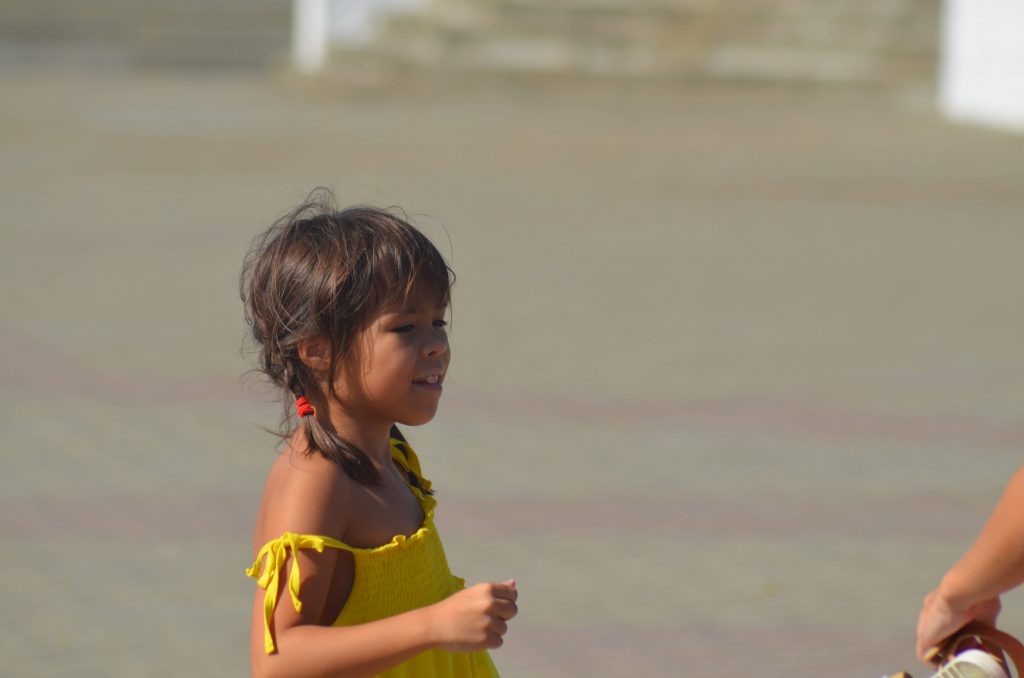Unconditional love

How to understand that something is wrong with a child if his age is still very small? How to catch the first autistic features if the child is the first and there is nobody to compare with? How not to fall into paranoia, looking for the slightest signs of developmental delays?
Now that the principle of early development has almost reached its peak, young parents from the first days of a child’s life often fall under his authority. Around there are a lot of children’s development centers that offer an amazing variety of ways to grow, if not a genius, then a comprehensively developed (sorry, for repeating) person. Mental arithmetic, global reading, modeling from the cradle, yoga, dancing – for every taste and color. Add to this the blogs of successful moms who grow healthy personalities on the right diet, using hidden potentials and all kinds of resources of the body and try not to succumb to this atmosphere. Of course, I exaggerate, and any activities with the baby, of course, benefit him, especially if they are a joy to both parents and children. But I want to focus your attention on the psychological state of the parents themselves in which they are after birth. Situations are different for everyone, characters, worldview, upbringing in the end, but the birth of a new person always gives you the opportunity to change your life, if not dramatically, but to fix something. And now, recalling how we were forced to eat semolina in our childhood, we say: “I will never force my child to eat what he does not want”? We want to make the childhood of our children happier than it was with us, correcting the mistakes of our parents. “My father sent me to sports at the age of 6 and it made me a real man, I want my son to play sports too,” we use positive experience. However, we must be prepared for the fact that we will make a lot of our own mistakes that will affect the formation of the personality of our children. I believe that the main thing that we must do as parents is to give children love. Unconditional love. Accept it for what it is, accept the fact that he or she may not like books like you or will be fond of air modeling, not swimming, listen to music that you don’t like, dress differently than you think is necessary. All this does not mean the collapse of your hopes, it just means that your child may not be what he is, not strive to study perfectly for the sake of mean parental praise, not to break the glass in the hope of rare attention, but just to be interested in the world, receive new experiences, share your concerns with you and grow.
E. Erickson (psychologist) introduced the concept of “basic trust in the world,” which, from his point of view, is formed in infancy and is the basis for the further successful formation of a healthy person. Mom and the surrounding adults love the little baby simply because he is, and not because he looks like a loved one, grows up as an astronaut or lives his own life differently from his parents. It is from this feeling of acceptance that the child receives self-confidence in the future, strength so that after failure he doesn’t disappoint in life, but move on, the ability to believe in himself, despite the opinions of others and a lot of other useful things. This theory is very close to me. Even in the second year of university, our teacher Maya Eduardovna said, and I forever remembered the phrase: “Let your child have better self-esteem than underestimated. Because on his life’s journey there will be a lot of people who want to lower his self-esteem, but very few who will increase it. ” And this is also about love and unconditional acceptance.
And it seems that this very concept of “unconditional love” is very simple and understandable. Probably 99% of parents are sincerely sure that they love a child without any conventions. However, in fact, we are full of our cockroaches, hopes, complexes and giving up the desire to realize all this in our child is very difficult. This is a colossal work on yourself. First, one must find the courage to admit that we are not perfect. Secondly, accept the fact that our child is also not perfect (he is real and may not have the qualities you want, but have those that you would not want to see in him). Thirdly, since we are all not perfect, we need to relax and become happy. It is much easier for happy parents to raise happy children. Happy, in general, is easier and more pleasant to live. Another thing is that in order to become happy you need to work, I repeat, first of all on myself.
If the parent wants his child to be happy, anxiety passes. And if a child is with developmental features, it becomes much easier to accept this fact. And as soon as the parent has accepted it as a given it becomes easier to work with it. The development and habilitation of a child is much better and more successful if the goal of the parents is not to reach the norm, not to become like everyone else, not to mask unwanted behavior, but to help find oneself in this world, help to become independent, to realize oneself. In my opinion, this is the most important step and the best that a parent can do for his child, whether he has developmental features or not.
Comments: